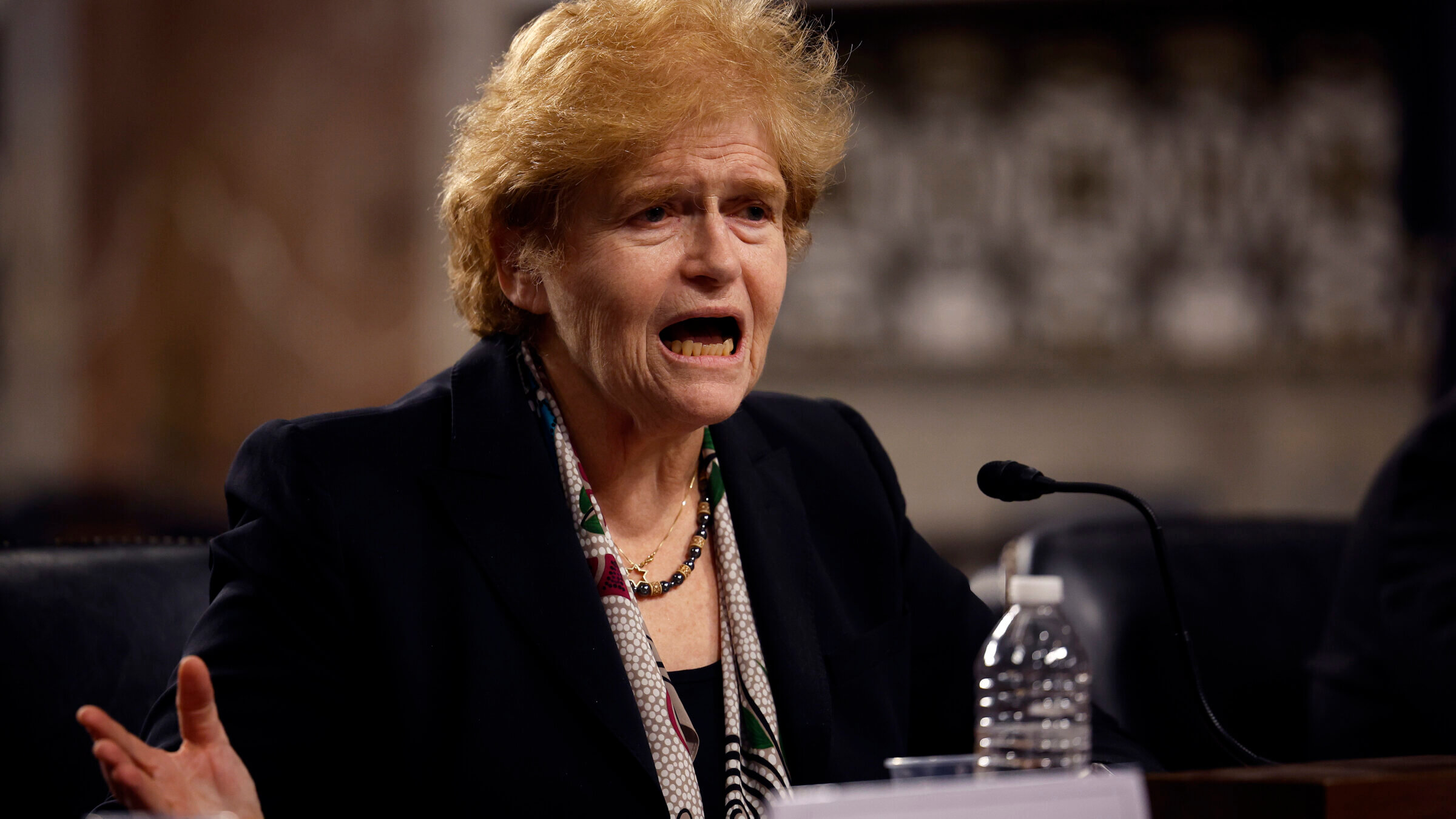Lipstadt tries to avert criticism of forthcoming national plan to combat antisemitism
In the days before the plan’s release, Jewish groups have been lobbying for and against a definition of antisemitism that would include anti-Zionism

U.S. Special Envoy to Monitor and Combat Antisemitism Deborah Lipstadt on Dec. 13, 2022. Photo by Chip Somodevilla/Getty Images
Anticipating pushback from American Jews, Ambassador Deborah Lipstadt, the State Department’s top envoy to combat antisemitism, urged them to take a broad view of the first-ever national plan to counter anti-Jewish bigotry, which the White House plans to unveil next week.
In recent days, progressive and mainstream Jews have disagreed over which antisemitism definition the plan should embrace, with more left-leaning Jews arguing against one that equates anti-Zionism with antisemitism.
“There will be things people quibble with, of course, disagree with,” Lipstadt said in a meeting with Jewish journalists Wednesday. She said she hopes American Jews “step back” to look at the document as a whole, and invoked a teaching from the Talmud in Hebrew, “Al tistakel b’kankan eleh b’mah sh’yesh bo,” and then translated it to English: “Don’t look at the jar, look at what’s inside of it.”
Leading American Jewish organizations have been lobbying the administration to include the International Holocaust Remembrance Alliance (IHRA) definition of antisemitism in the plan. The U.S. State Department has used the definition for more than a decade. At least 39 countries have adopted it. But it has been rejected by other Jewish advocacy groups that say it stifles legitimate criticism of Israel. The U.S., they argue, should not enshrine it in the plan as the standard American definition.
Lipstadt called it an “effective tool” but declined to say whether it, or a modified version of it, would be included in the plan.
A year into her tenure — she is the first to serve in the position since it was elevated to the ambassadorial level — Lipstadt focused on the historic nature of the soon-to-be-released document. “America has never done something like a national plan to fight antisemitism, which involves most of the major agencies of the U.S. government,” she said. “There will be some things that people will disagree with. But when I see the time and effort that has gone in by White House, by high-ranking individuals, it’s a message that we take this seriously.”
The plan — developed in recent months by an interagency task force created last December — follows conversations with more than 1,000 Jewish community leaders across denominations. President Joe Biden, at Tuesday’s White House celebration for Jewish American Heritage Month, said it will include more than 200 measures that government agencies, social media platforms and elected officials can adopt to counter rising antisemitism.
The ADL’s annual audit counted 3,697 antisemitic incidents last year, the highest number since it started tracking antisemitism in 1979, and a 36% increase from 2021.
Lipstadt, who is on a three-year leave from Emory University in Atlanta, is one of the world’s most respected historians of the Holocaust. She was nominated special envoy to monitor and combat antisemitism in July 2021 but her confirmation was delayed because a Republican senator objected to a tweet in which she accused him of white supremacy. She started working in May 2022 and has since made 17 trips abroad, including to Arab countries in the Middle East and the Gulf region.
Liptadt said she will visit Israel next month.
Also at Wednesday’s briefing, Lipstadt weighed in on the recent attacks against Jewish billionaire George Soros. On Monday, Elon Musk, the chief executive of Tesla and SpaceX and owner of Twitter, compared Soros to Magneto, a Marvel supervillain who in the movies, like Soros in real life, survived the Holocaust. Republicans have also attacked Soros as a “globalist” and accused him of controlling former President Donald Trump’s prosecutors and critics. Lipstadt, like the ADL and other Jewish groups and leaders, deemed these attacks on Soros antisemitic.
“You can criticize George Soros — many people do — for his economic policies, even for his political programs, for his foundation,” she said. “But when you turn him into the Rothschild of the 21st century, then you’re engaging in antisemitism. When you link his activities to his Jewish identity, when you disparage his activities — some of which I may disagree with — and when you turn him into this villainous character, which has antisemitic overtures, you’ve crossed the line.”
Lipstadt added that using the term ‘globalist’ is unquestionably antisemitic. “’Globalist’ has long been a euphemism for a ‘cosmopolitan,’” she said. “What you’re saying is Jews do not have loyalty to the country in which they live in, that they have loyalty one to the other and that they are out to destroy the countries in which they live in.”

















